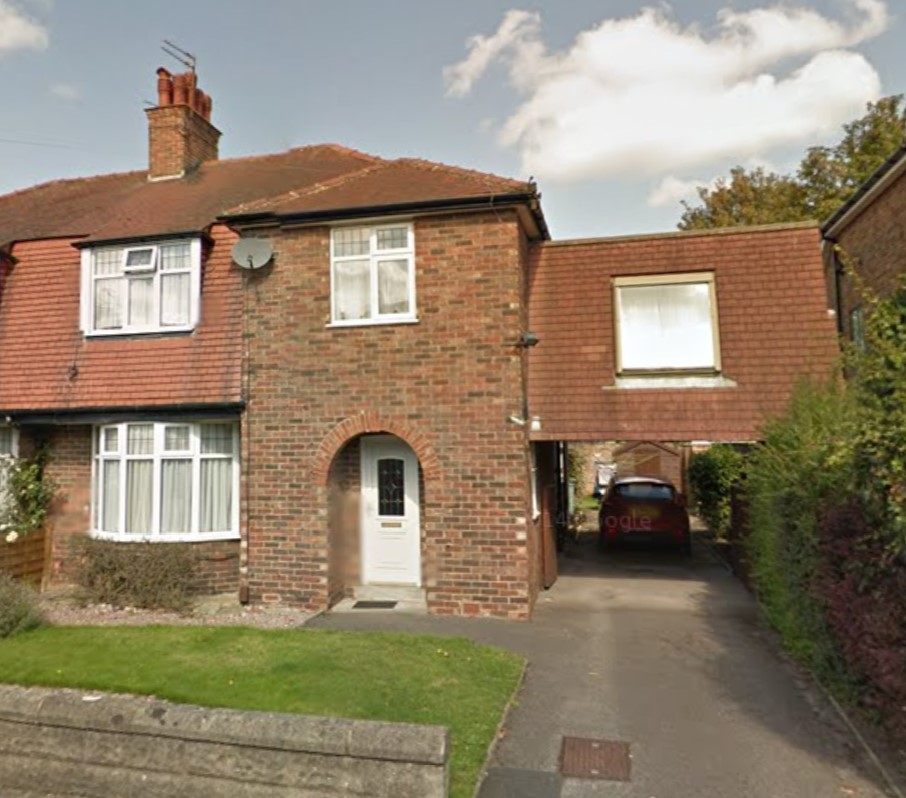
- Remove tax-free money from your house with Age 50 Equity Release
- You don’t need to make regular monthly payments
- Buy a family member a home without a mortgage.
- Stay living in your own house for as long as you like
- Steel frame/panels ok
- Concrete frame/panels ok
- Over 10 acres of land ok
- 5.15%
Loan to value for equity release?
You can release 70% of your property’s valuation. For example, if your house is valued at £270000, you can borrow £189000.

Testimonials and Example Cases

Sandra from Manchester
I got equity release to give money to my daughter to buy a house. Without the money I borrowed, her buying a home would have been impossible.

Mr Williamson from Chiswick
My son is a chef in a care home. He is not well paid. No way his bank would lend him the money to buy a flat. My equity release enabled him to put a substantial deposit down so his mortgage was very small.
My equity release interest rate was close to the interest rate offered by his bank.

Mrs E from London
I was advised to get equity release from my East London home to minimize inheritance tax.
My son and daughter used the money to pay down their mortgages. The interest rate on the equity release was so low it was close to their mortgage rate.

Ms T from Hammersmith
My husband recently died leaving me with a mortgage I could not afford to pay.
The lifetime mortgage allowed me to pay off the mortgage and have enough money left over for a new bathroom, kitchen, and roof repair.

Mrs L from Nottingham
I had to pay a valuation fee and a solicitor’s fee, but no lender or broker fees for my lifetime mortgage.
As I was divorcing my husband of 30 years the money went to him for his share of the house. I am happy now as I am secure, and I do not need to move from my home.

Julia A
My mother has dementia. With my solicitor and my power of attorney, I got equity release on my mother’s house to pay for specialist modifications for her comfort.

Mr Smith from Kendal
My financial advisor told me that I should get equity release and gift money to my 5 children now as it would save a massive amount of inheritance tax.

Sophie G from Aberdeen
The financial advisor I’ve had for 25 years said I could save inheritance tax by getting £350,000 of equity release.
The money was lent at a very low interest rate close to 5.19% and competitive with normal mortgages you would get by providing income. I have saved a lot of tax.

Mrs. E from London
My mortgage needed to be repaid to the existing lender. I thought I was going to lose my house. Thanks to Concise I got equity release to pay off my mortgage.




- More to Life Capital Choice Plus Plan
- More to life Flexi Choice Drawdown Lite Plan
- Just Retirement Equity Release Schemes
- L&G Legal & General Premier Flexible Lifetime Mortgage
- TSB Lifetime Interest Only Mortgage
- Saga home reversion schemes
- More to life Flexi Choice Drawdown Lite Plan
- Age 50 Equity Release
- Liverpool Victoria LV Equity Release Schemes
- More 2 Life Flexi Choice Drawdown Lite Plan
- NatWest Equity Release Schemes
- Aviva Lifetime Mortgage
- Hodge Indexed Lifetime Mortgage
- Just Retirement Interest Only Lifetime Mortgage
- Liverpool Victoria LV= Flexible Lifetime Mortgage
- Pure Retirement Drawdown Plan
- NatWest Equity Release Schemes
- Age Partnership Lifetime Mortgage
Areas in the UK where Age 50 Equity Release is common
- Garstang
- Winslow
- Waltham Cross
- Princes Risborough
- Godmanchester
- North Tawton
- Radstock
- Rothbury
- Upton-upon-Severn
- Peterlee
- Barnet
- Burford
- Modbury


It’s very regular to find people searching for interest-only lifetime mortgages, lumpsum lifetime mortgages, or lifetime mortgages with flexible drawdown cash release. However, Key Retirement, like Maximum Cover Equity Release, is keen to see evidence of your circumstances in the form of investment statements.
Equity Release LTV Age 50 Equity Release
The more elderly you are and the more serious your illnesses you are the more money you can release.
Canada Life Drawdown Lifetime Mortgages

Challenging to finance home titles include properties with legal agreements such as Overage, Clawback, Option, Pre-emption, or any onerous Restrictive Covenant, leasehold properties with a short lease, typically less than 70 years, or a defective lease, properties of non-standard construction, thatched buildings and Reema Hollow panel, Schindler and Hawksley SGS, Stent, Stonecrete, Stour, Tarran, Underdown, Unity and Butterley, Waller, Wates, Wessex, Winget and Woolaway.

Tough to finance property variants can include properties built or converted into dwellings more than 10 years ago, properties with grounds in excess of five acres, properties without direct access to an adopted highway or which are accessed over an unmade road, properties with mobile phone masts which are not within influencing distance of the house and properties that have a private water supply provided a contract is in place with an approved maintenance company for regular testing and maintenance.

Difficult to mortgage property variants include eco houses and modern methods of construction, properties with single skin brickwork where the single skin comprises more than 20% of the surface area of the external walls, properties constructed or converted within the past 10 years, freehold/feuhold flats (Scotland only) and freehold flats (England, Wales, Northern Ireland).

Age 50 Equity Release is common among business owners like below
- Private security activities Maidstone
- Transmission of electricity Masham
- Processing and preserving of fish, crustaceans and molluscs Market Harborough
- Manufacture of tobacco products Oakham
- Manufacture of non-electronic industrial process control equipment Bradley Stoke
- Data processing, hosting and related activities Selsey
- Agents involved in the sale of fuels, ores, metals and industrial chemicals Sandown
- Construction of commercial buildings Redcar
- Security dealing on own account Corsham
- Manufacture of soft furnishings Banbury
- Manufacture of other products of wood; manufacture of articles of cork, straw and plaiting materials Bampton
- Manufacture of industrial gases Cullompton
- Cultural education Marlborough
- Operation of rail freight terminals Ryde
- Wholesale of office furniture Harpenden
- Distilling, rectifying and blending of spirits Halesworth
- Publishing of newspapers Edmonton
- Activities of call centres Clun
Hard-to-finance property variants can include homes requiring essential repairs, entirely tenanted properties, right–to–buy properties in Scotland, leasehold properties (with the exception of flats and maisonettes), and properties with single-skin brickwork.
- Yorkshire Bank Over 75 Mortgage
- Paid Off Mortgage Now What
- Lifetime Mortgages Interest Only
- Annexes or Two Kitchens Building Society Preston
- Equity Release Comparison
- Best Mortgages For Over 50s Pensioner Mortgage Advice
- Nationwide Equity Release Advice
- Non Status Mortgages
- Mortgage At 50
- Aldermore Mortgage Home
- Cambridge Building Society Bar Hill
- L&G Equity Release Areas In UK
- Buy To Let Equity Loan
- Liverpool Victoria Equity Release House
- Mortgages For Over 75s Pensioner Mortgage Calculator
- Yorkshire Building Society Interest Only Lifetime Mortgage
- Natwest Lifetime Mortgage
- Rbs Lifetime Mortgage Interest Rate
- Can Pensioners Get A Mortgage
- Tipton & Coseley Mortgage Comparison
- Straw Roof
- Leek United Building Society Over 70 Mortgage
- Newcastle Building Society Retirement Mortgage
- Equity Release Under 50 Calculator
- Saffron Building Society Equity Release Rates 2025
- Halifax Equity Release Loan
- Bad Credit Mortgage
- Interest Only Mortgages For Over 65 Year Olds
- Canada Life Pensioner Mortgage
- Rbs Equity Release Interest Rates
- West Bromwich Building Society Mortgage Rates 2025
- Market Harborough Building Society Interest Only Lifetime Mortgage
- Nationwide Equity Release Schemes
- Gloucester Bank Interest Only Lifetime Mortgage Interest Rates
- Age 50 Equity Release House
- Monmouthshire Building Society Over 70 Mortgage
- Japanese Knotweed Map
- Dudley Building Society Equity Release Interest Only
- Mortgage Property With Over 10 Acres
- Loughborough Building Society Equity Release UK
- Just Retirement Later Life Mortgages
- Equity Release In Spain
- Equity Release Northern Ireland House
- 55+ Mortgage
- Can I Get A Mortgage At 54 Years Old
- Furness Building Society Over 50 Mortgage
- Bridgewater Equity Release Interest Only
- Ni Over 65 Mortgage
- Best Equity Release
- Barnsley Equity Release Interest Rates
- Swansea Building Society Mortgage Rates 2025
Some of the most common loan to value ratios of Standard Chartered pensioner mortgages over 55, Direct Line interest only mortgages for over 60s, Churchill equity release schemes for people over 70, Skipton Building Society over 60 lifetime mortgages no fees, Newcastle Building Society interest only mortgages for people over 70 and Progressive Building Society mortgages for over 65 are 45%, 60% and 70%.
Small kitchen/bathroom extensions of single skin brickblockwork•Concrete or steel frame-blocks of flats built after 1980
What percentage can be released Age 50 Equity Release?
- 50% lumpsum lifetime mortgages Old Mutual Wealth
- 30% loan to value home reversion schemes Cambridge Building Society
- 45% loan to value (LTV) lump sum lifetime mortgages Bridgewater
- 50% LTV lifetime mortgage with flexible drawdown cash release Together Money

Popular LTV ratios of Lloyds interest only lifetime mortgages for over 60s, Barclays Bank retirement interest only mortgages over 75, Post Office mortgages for 60 plus pensioners, L&G retirement mortgages over 65, RBS help to buy for over 60s and Nationwide Building Society mortgages for 60 year olds are 50%, 55% and 65%.

Popular loan-to-value ratios of LV= retirement interest-only mortgages over 60, More to Life mortgages for 60-year-olds, One Family interest-only mortgages for people over 60, Yorkshire Building Society interest-only mortgages for over 65-year-olds, Principality Building Society mortgages over 65, and SunLife interest-only mortgages for over 70s are 35%, 60%, and 70%.
The mortgage lender will want to know if the property is a semi-detached freehold house or a Leasehold house and if the resident is an AST Tenant.
Pitfalls of Age 50 Equity Release
A lifetime mortgage with flexible drawdown cash release can reduce your estate value. Lump-sum lifetime mortgages may impact entitlements to state benefits. You may need to pay an advisor’s fee, and some products may expose you to changes in interest rates.
Providers for UK Age 50 Equity Release
- Key Retirement
- Prudential Lifetime
- Legal and General
- Legal & General
Flat roofs over 50% of the total roof area (except blocks of flats)•Asbestos sheet•Corrugated metal
Many of the most appealing retirement finance offerings are TSB lifetime mortgages, Barclays Bank help-to-buy mortgages for over-60s, Post Office interest-only retirement mortgages for over 70s, Legal and General lifetime mortgages, and Nationwide mortgages for 60 plus.















